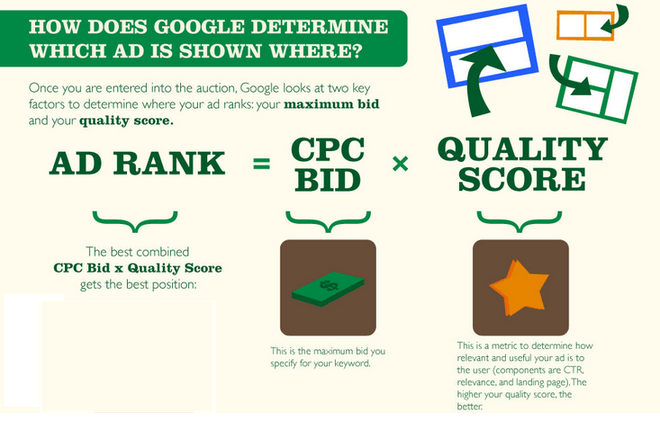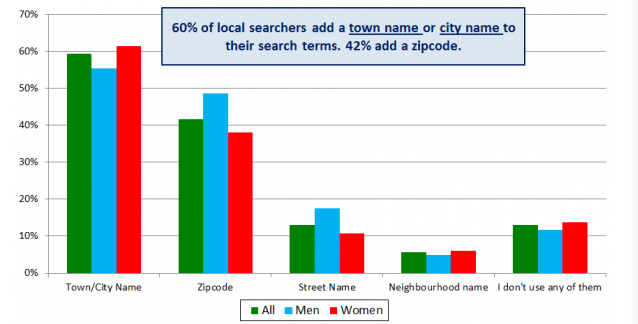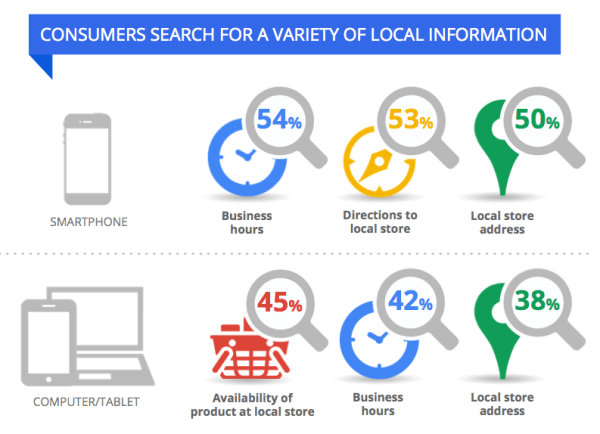What is Search Engine Marketing? A Small Business Owner's Guide to Getting it Right
You need to find a product or service near you, so you head on over to Google and ultimately make your decision. Sound familiar? Finding local businesses and services in your area wouldn’t be possible without the wonderful world of search engine marketing. So, what exactly is it? Keep reading for the full scoop on what SEM is and why your small business should use it if you're looking to grow your clientele.
Want to cut to the chase? Here’s an overview of the questions we’ll be answering in this article:
- What is Search Engine Marketing?
- How is a Quality Ad Score Determined?
- What are the Different Ad Formats Available in Search Engine Marketing?
- Why is SEM Important for Local Businesses?
- How Can Small Businesses Implement Successful Search Engine Marketing Strategies?
- How Can Local Businesses Use Search Engine Marketing to Reach Multicultural Consumers?
- How Can I Get Started?
More questions? We’re ready to answer those too.
Contact us.
What is Search Engine Marketing?
Given that 92% of online searchers will pick businesses on the first page of local search results, and searches for “near me,” or “close by” grew by more than 900% in only two years, your local business’s search engine results can make or break your chances of gaining new customers.
A search engine marketing strategy is your best bet at ranking higher on search engine results pages (also known as SERP). Every Google ad goes through an ad auction before it appears in the SERP. For ads to be entered in an auction, your business or marketing agency of choice will identify keywords to bid on, and choose the amount that you’re able to spend per click for each of those words.
Once Google verifies the chosen keyword bids within the search query, you will be entered into the ad auction. Keep in mind that not every single ad will appear on each search related to a particular keyword, since ads won’t always appear unless enough people are actively searching for a particular service or keyword.
However, placing bids doesn’t necessarily mean you’re guaranteed to “win,” and factors like your maximum bid price and your quality score for the ad play a big role.
While this may all be a lot to take in, it’s highly recommended that your business partners with a local marketing agency for expert guidance and a seamless SEM experience. Check out our article on what to look for when picking a local marketing agency for your business.
How is a Quality Ad Score Determined?
Quality Scores are estimates of the quality of your potential ads, keywords used, and your landing pages. Based on a scale of 1-10, your quality score determines how relevant your ad will be to users, as well as the likelihood that someone will click through and have a positive landing page experience.
The way your campaign is organized is made up of the following categories:
- Ad - The words used in your written ad.
- Keywords - The search query keywords you’ve selected.
- Ad Group - Related keywords that are grouped together by theme.
- Campaign - The highest level overview for managing your ad groups. Your performance at each level can help you figure out what is and isn’t working in your overall campaign.
What are the Different Ad Formats Available in Search Engine Marketing?
Search engine marketing ads (also known as pay-per-click ads, “PPC ads,”) come in several formats ranging from small text-focused ads, as well as specific product listing information - known as Shopping ads - for a more visual-focused option that allows consumers to view key information like prices and reviews. Depending on your business’s offerings, some ad types may be more preferable than others.
So, what makes SEM different from other online ads? What sets search engine marketing apart from other digital marketing methods is that it places ads directly in front of customers right when they’re about to decide to make a purchase - making it a powerful tool that can play a make or break role in the decision-making process among consumers.
Why is SEM Important for Local Businesses?
Roughly 97% of consumers use online search to look for local businesses in their area. Making sure your business is at or near the top of these search engine results can mean the difference between gaining potential customers or losing out on their business.
Additionally, consumers are ready to take action when they search, with 88% of consumers calling or visiting a physical store location of their choice on the same day after searching on their mobile devices.
Want to learn more about using your local business status to your advantage? Read our post on the top local business strengths to use to your advantage.
How Can Small Businesses Implement Successful Search Engine Marketing Strategies?
Beyond bidding on pay-per-click advertising, there are plenty of other ways to incorporate search engine marketing into your small business’s local marketing strategy. While some may require you to get a bit creative, others are as simple as setting up a quick online profile with your business’s basic information.
Below are a few ideas to get you started:
- Publish high quality, useful content on your website using localized keywords and common search queries.
- Create or claim your Google My Business listing - it’s as simple as updating basic information such as your business’s hours of operation, address, phone number, and website. Make sure to keep it up to date and keep track of keywords and your local target audience’s preferences.
- Create online citations across business directories to attract more views on your profile.
- Encourage customers to leave online reviews, which can enhance your credibility and convince potential clients to choose your business.
- Optimize for mobile search queries, which have grown dramatically in recent years. According to a Forrester study, it’s predicted that mobile devices will influence more than $1.4 trillion in local business sales by 2021.
How Can Local Businesses Use Search Engine Marketing to Reach Multicultural Consumers?
Search engine marketing is a crucial component of multicultural marketing campaigns that are aimed to target users who prefer to search in languages other than English. For instance, if your aim is to target Hispanic consumers in an area where Spanish is preferred over English, you’ll be missing out on potential customers if your SEM strategy only includes English-language ads.
While 85% of Hispanic consumers set their browsers to English, Spanish-language ads still resonate - with Latino audiences being 2.4x more likely to convert on Spanish language ads when compared to English-language ads.
It’s true that many Latinos tend to search in English, however, age and generational differences can also play a role. Reaching Hispanic parents and older Latinos in Spanish is often ideal depending on their personal language preferences and acculturation. Wondering what “acculturation” means within the U.S. Hispanic community? Our cultural affinity model has you covered.
Ultimately, SEM can be an invaluable component of your larger Hispanic marketing and multicultural marketing strategies.
How to Get Started with Digital Marketing
Interested in getting started with digital marketing or search engine marketing in particular? Check out our SEM offerings for more information. Whether you want to reach the general market or Hispanic audiences in particular, our expert digital marketing consultants have the solutions you’re looking for.
Find a location near you to get started, or contact us if you have any other questions. No question is too big or small - we look forward to hearing from you!


















